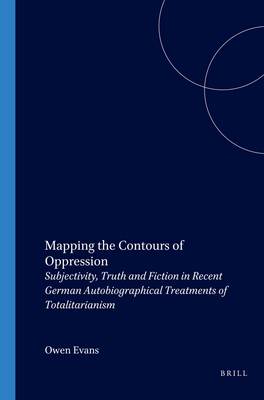
- Afhalen na 1 uur in een winkel met voorraad
- Gratis thuislevering in België vanaf € 30
- Ruim aanbod met 7 miljoen producten
- Afhalen na 1 uur in een winkel met voorraad
- Gratis thuislevering in België vanaf € 30
- Ruim aanbod met 7 miljoen producten
Zoeken
Omschrijving
Despite all the assertions towards the end of the twentieth century that the literary subject had expired along with the author, the wave of autobiographies published in German after the Wende was a clear indication that, on the contrary, life stories were very much alive. In this study, Owen Evans examines the work of eight authors - Ludwig Harig, Uwe Saeger, Ruth Klüger, Günter de Bruyn, Günter Kunert, Christoph Hein, Grete Weil and Monika Maron - who all published personal texts after 1989 dealing either with life in Nazi Germany or the GDR, and in some cases both. By means of close textual analysis, Evans explores the impact these regimes had on the individuals concerned and the contrasting ways in which the authors handle the autobiographical project. They adopt varying textual strategies to render the self on the page, with some employing overt fiction, and yet in each case, the project was clearly motivated by the need to treat psychological wounds inflicted on the self by totalitarianism. In their mapping of the contours of oppression, the texts at the heart of this study combine to offer a powerful defence of literary autobiography, in Germany at least, as a valuable means of tackling the legacy of totalitarianism.
Specificaties
Betrokkenen
- Auteur(s):
- Uitgeverij:
Inhoud
- Aantal bladzijden:
- 368
- Taal:
- Engels
- Reeks:
- Reeksnummer:
- nr. 156
Eigenschappen
- Productcode (EAN):
- 9789042017191
- Verschijningsdatum:
- 1/01/2006
- Uitvoering:
- Paperback
- Formaat:
- Trade paperback (VS)
- Afmetingen:
- 155 mm x 234 mm
- Gewicht:
- 512 g

Alleen bij Standaard Boekhandel
+ 366 punten op je klantenkaart van Standaard Boekhandel
Beoordelingen
We publiceren alleen reviews die voldoen aan de voorwaarden voor reviews. Bekijk onze voorwaarden voor reviews.








